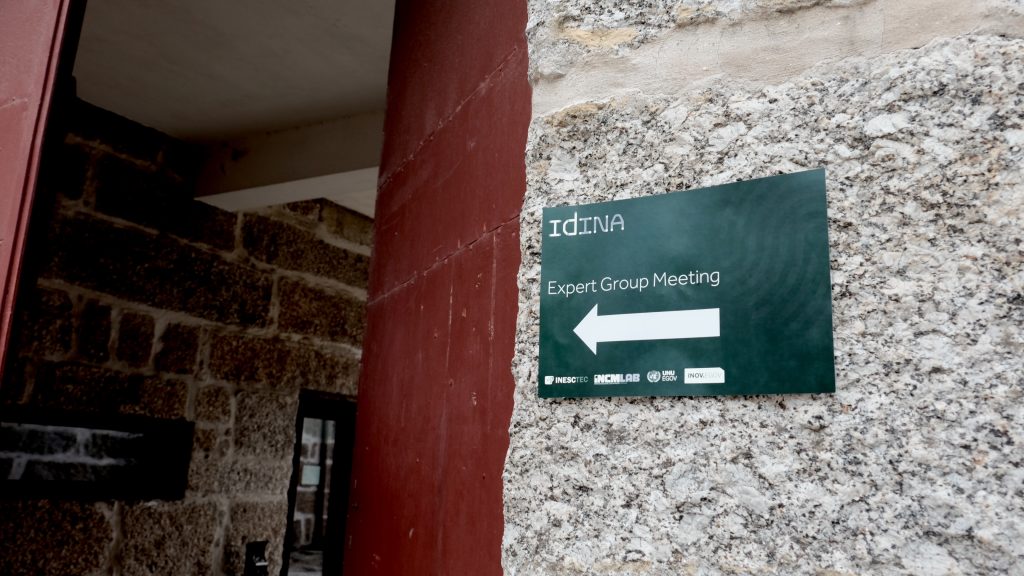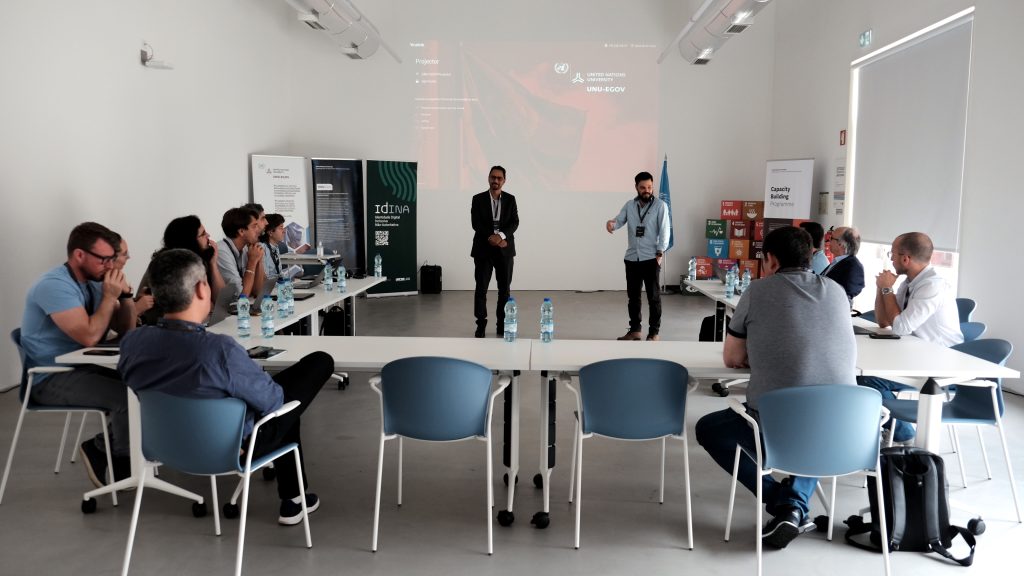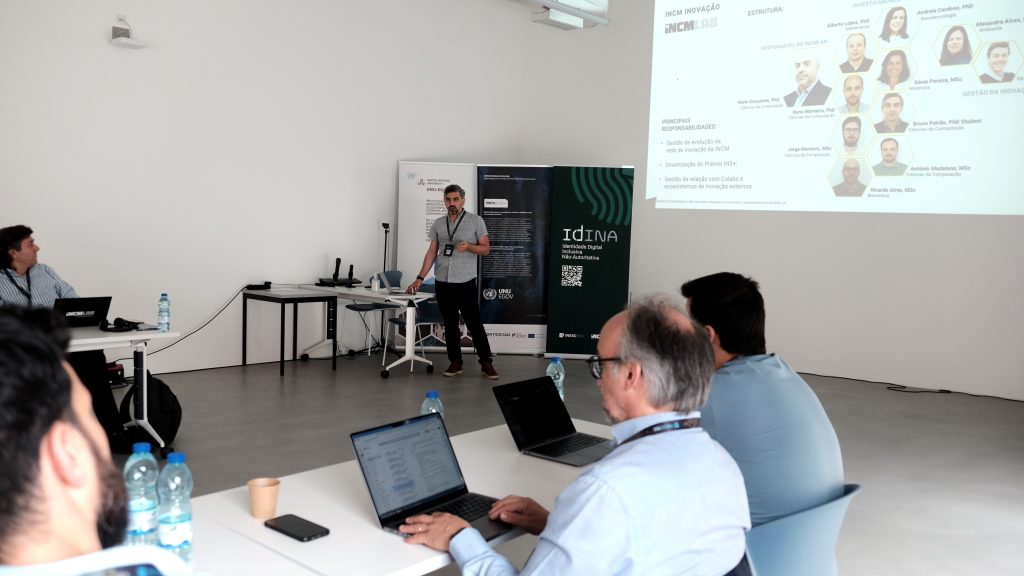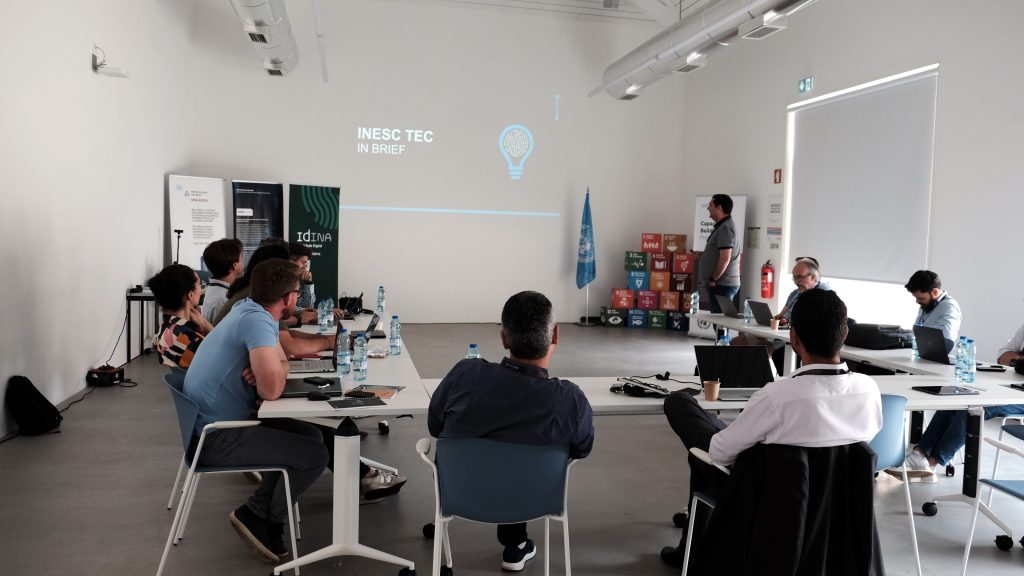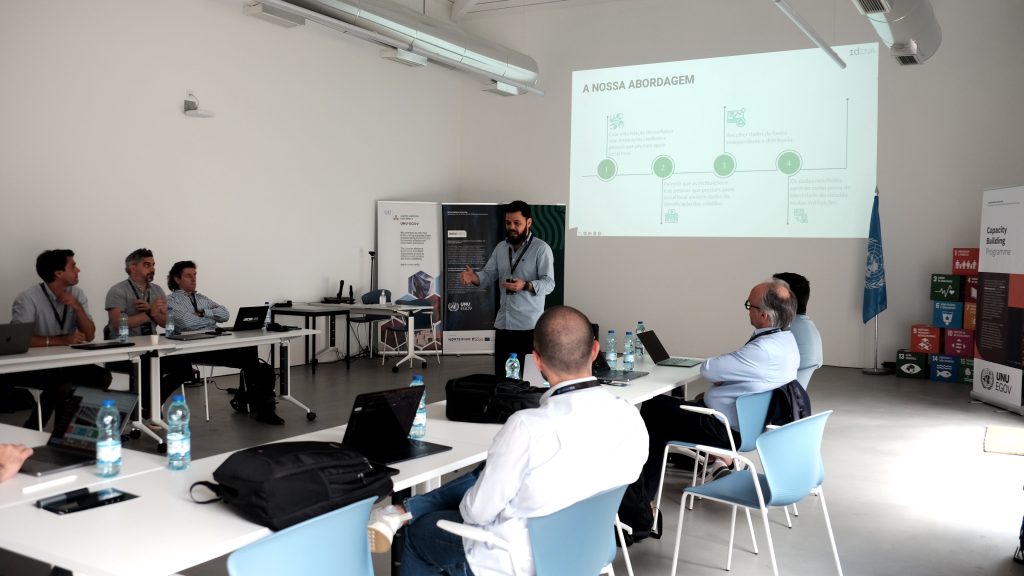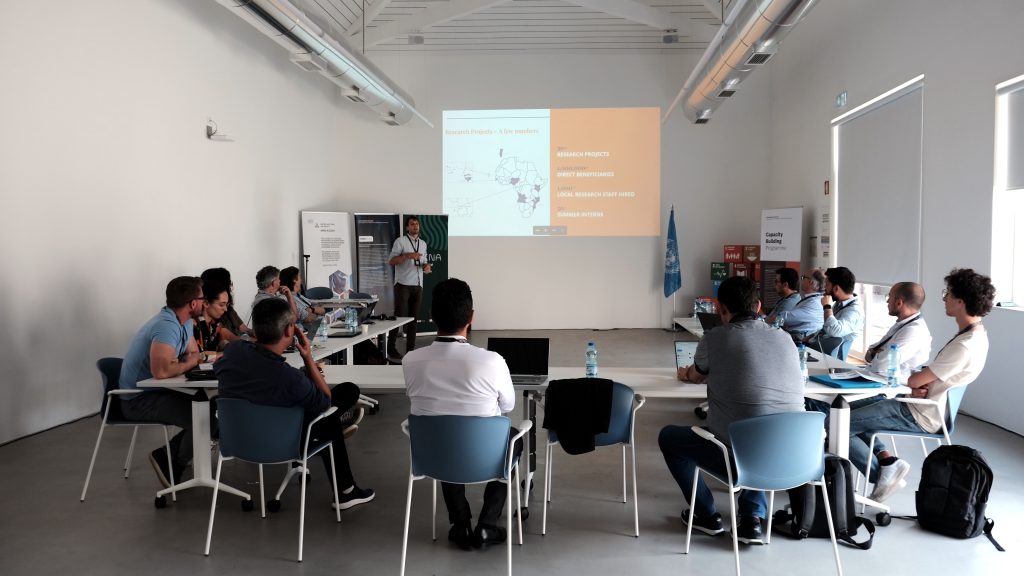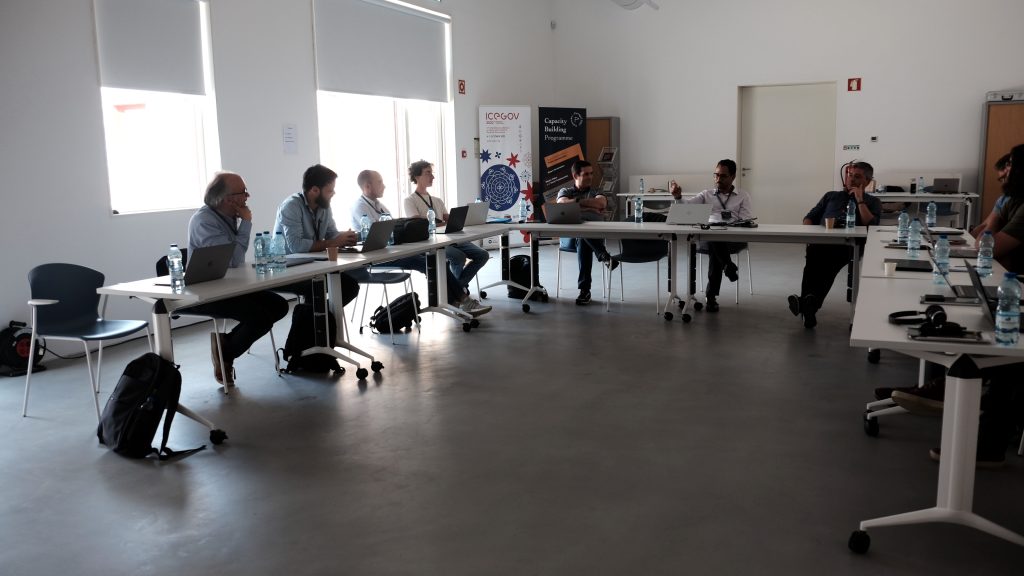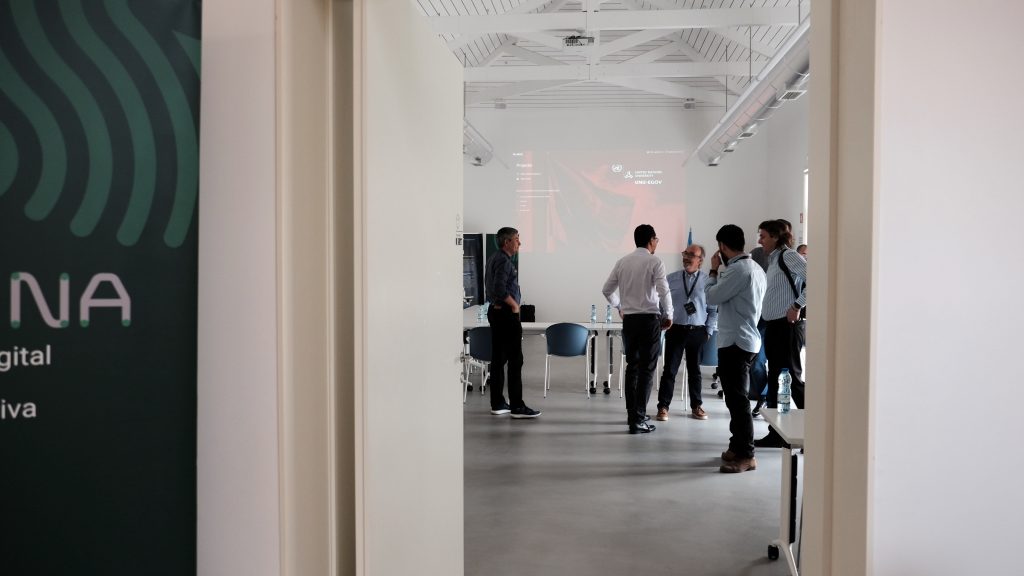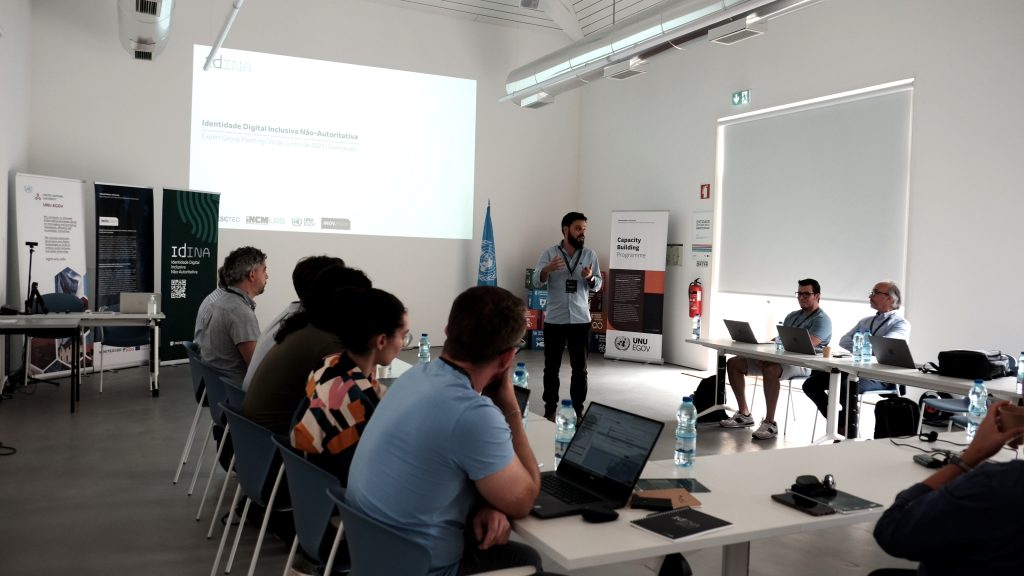
Coming from different areas of expertise, with disparate knowledge and willingness to learn more. It was with this mindset that the IDINA partners, on the 20th of June, sat down at the same table for the project’s first Expert Group Meeting, where the main objective was to reinforce the project’s potential and impact. The meeting began with brief institutional presentations by each of the entities represented, which was followed by a first, more formal presentation of the IDINA project: approach, development, and implementation strategy.
On the part of INESC TEC, António Luís Sousa, João Marco, and Vítor Fonte (project coordinators), Diogo Ribeiro, Cândido Vale and Pedro Moreira (software engineers) were present at the UNU-EGOV facilities, in Guimarães. Through their participation, it was possible to understand the developments in the technical component of the system that is being created, namely the design and a preview of what can be expected from its operation.
In this context, Bruno Patrão and Nuno Ferreira, representatives of INCMLab, a partner entity, also made their contribution, recalling the role that Casa da Moeda has in the production and certification of identification documents and other products in Portugal.
After this first contact, a discussion began, with the remaining entities present asking questions, but also providing relevant contributions in terms of the implementation of IDINA. In this part, the presence of Wagner Araújo, Erico Przeybilovicz, Nuno Barbosa and Inês Ruas (United Nations University), and Mattia Fracchia, researcher from NOVAFRICA (Nova SBE) stand out. The knowledge resulting from the application of social projects on the ground, namely in territories considered key for IDINA, was especially deepened.
In this way, it was possible to anticipate some of the difficulties that may arise in the future, especially in a possible implementation of the IDINA system.
In the end, all participants highlighted the decisive role of the meeting in adjusting the development and implementation strategy of the IDINA project. For the future, in addition to the exchange of knowledge and experience, there is the expectation of new meetings between the entities, to articulate objectives and strategy.
About the IDINA Project:
The IDINA project aspires to create a non-authoritative approach aiming at a community-oriented identification system underpinned by relations of social trust, inclusiveness, and the use of cutting-edge accessible technologies. The innovative aspect of IDINA consists of relying on local entities as the primary source of information about the population they interact with. Based on this incrementally gathered information, individuals will be able to prove their identity in various scenarios.
